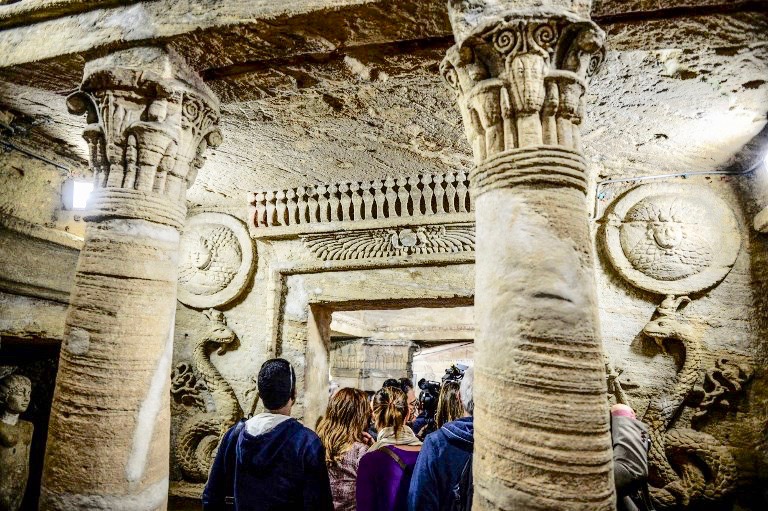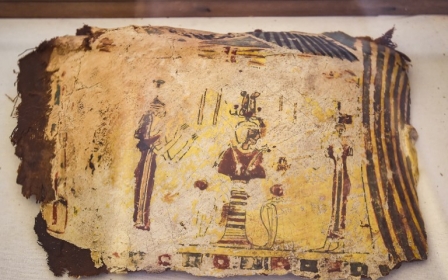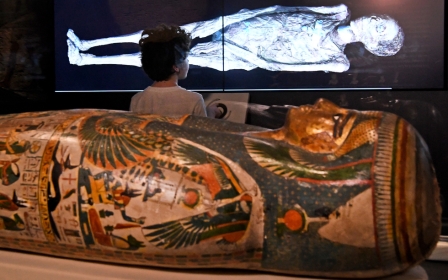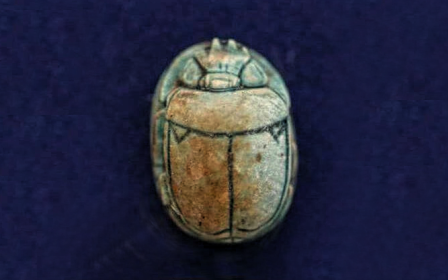Egypt rescues 2,000-year old catacombs from rising water
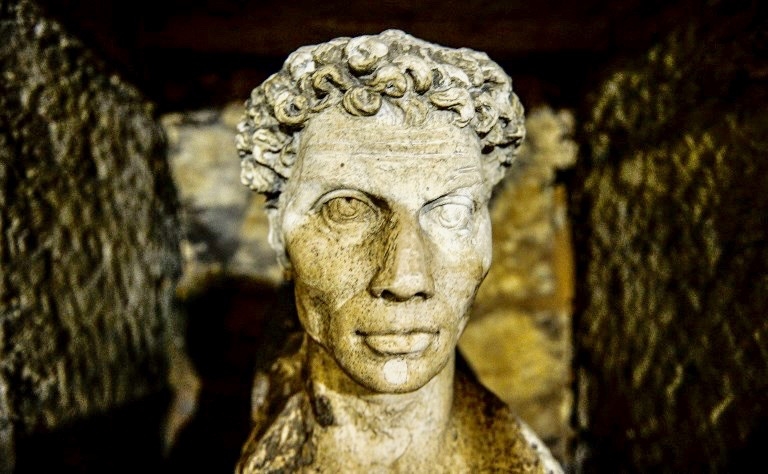
Egypt on Sunday completed a project to restore the 2,000-year-old catacombs of Kom el-Shoqafa in western Alexandria, which have been prone to groundwater leaks since they were discovered in the first decade of the 20th century.
The Kom al-Shoqafa location, considered by archaeologists to be the largest Greco-Roman burial site in Egypt, has been threatened by water since its discovery in 1900, AFP reported.
The catacombs are unique, mixing ancient Egyptian and Greco-Roman architectural styles. They were carved into the rock on three levels. The ground level was damaged by water from nearby farmland and a canal.
The rising water prompted Egypt to launch a massive drainage project supported by the United States Agency for International Development (USAID) in 2017. The $5.7m grant also covered maintenance and training for ministry employees, Reuters said.
Stay informed with MEE's newsletters
Sign up to get the latest alerts, insights and analysis, starting with Turkey Unpacked
Antiquities Minister Khaled al-Anani told reporters at the site that the programme had helped "end a problem threatening the area for more than 100 years".
"The antiquity underwent many restoration projects, the most important of which was in the mid-90s, which was an ambitious project supervised by the Supreme Council of Antiquities," Anani said.
"But unfortunately, the water returned once again and complaints rolled in from parliamentarians, tour guides and archaeologists, which is what pushed us to act in cooperation with USAID."
Thomas Nichols, an engineer involved in the project, called it "a unique programme where we blended archaeology and civil engineering together".
Egypt has in recent years sought to promote archaeological discoveries across the country in a bid to revive tourism hit by the turmoil that followed its 2011 uprising and was further hampered by a spate of militant attacks that sometimes targeted visitors.
Middle East Eye delivers independent and unrivalled coverage and analysis of the Middle East, North Africa and beyond. To learn more about republishing this content and the associated fees, please fill out this form. More about MEE can be found here.


